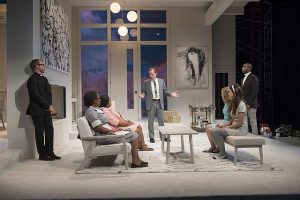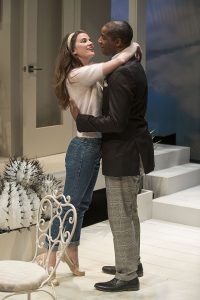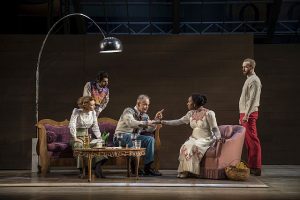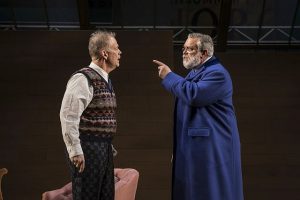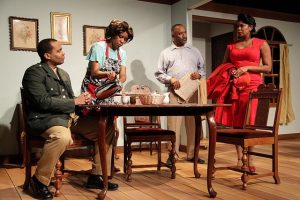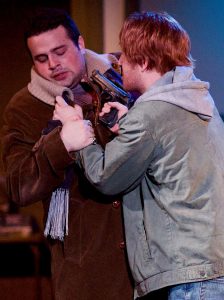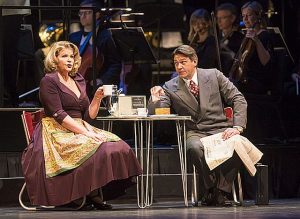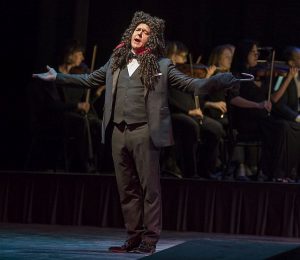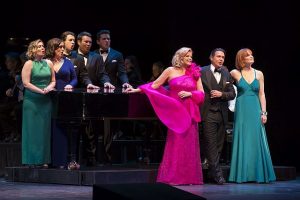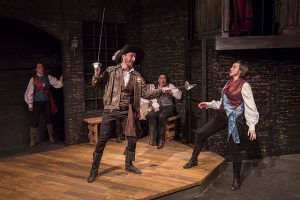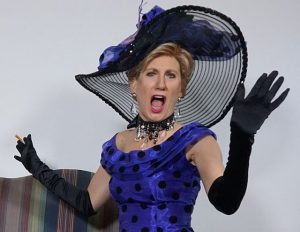HIGHLY RECOMMENDED

The musical, ‘A Taste of Things to Come,’ written by Debra Barsha and Hollye Levin, starts out in 1957 with four women living in Winnetka who meet once a week to prepare for an upcoming Betty Crocker cooking contest that they hope to win.
Sharing recipes is how their gatherings begin. While they chop, mix, and measure ingredients, they also read current articles in popular magazines, many of which lead their conversations down a non-culinary path of female frustrations, shared worries, and confidential secrets.
Joan Smith (played by Cortney Wolfson) is the weekly hostess to her three friends: Connie Olsen (Libby Servais), Agnes Crookshank (Linedy Genao) and Dottie O’Farrell (Marissa Rosen).
Joan changed her last name to Smith so that her neighbors won’t care about her real religion. Connie is pregnant and worries that her baby might not be born with her husband’s looks—especially when she reveals to her three friends that she had an affair.
Agnes is a single woman who discovers that her background is more diverse than the suburb where she was raised. And Dottie, a mother of many children, is overweight and takes numerous pills—before and after eating everything in sight—to try to shed pounds.
When Joan introduces them to a different piece of writing, the Kinsey report, they interact in more engaging conversations regarding the sexual revolution.
In the first act, rock ’n roll is ever-present with wonderful voices and fabulous dancing by the four friends to the production’s live music provided by a talented all-female orchestra.
Joan states that “lots of things bubble up in the kitchen.” That comment comes to life when racial, political, and other issues begin to surface as the women try to understand how to address them along with their personal needs.
The second act takes place ten years later in 1967, All but Dottie are hardly recognizable.

Joan, Connie, and Agnes are dressed like models and hippies and have taken on lives and professions of their own. This causes Dottie to feel sad and separated from them.
But when she describes how her “profession” is a mother to all of her children no matter what their ages are along with being president of the school’s PTA, not only do her three friends support her, the audience breaks into wild applause.
‘A Taste of Things to Come,’ directed and choreographed by Lorin Latarro, is a fantastic musical comedy that pays tribute to generations of females who paved the way for the important lives that many women currently embrace, along with the adventuresome and creative journeys that other women are pursuing.
DETAILS: ‘A Taste of Things to Come’ is at the Broadway Playhouse at Water Tower Place, 175 E. Chestnut St., Chicago, through April 29, 2018. Running time: two hours with one intermission. For tickets and other information, cal (800) 775-2000 or visit Broadway in Chicago.
Francine Pappadis Friedman
For more shows visit Theatre in Chicago


